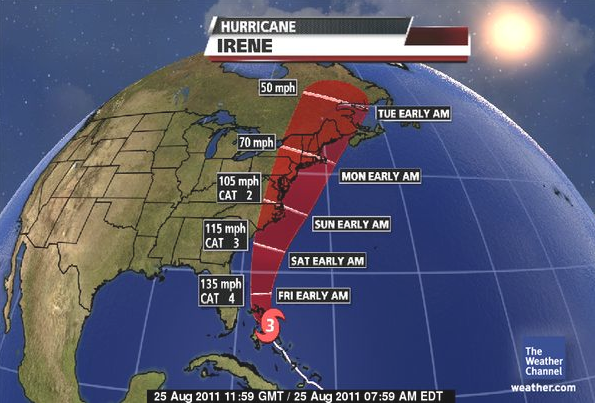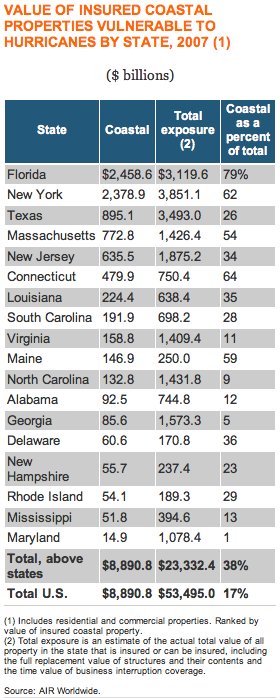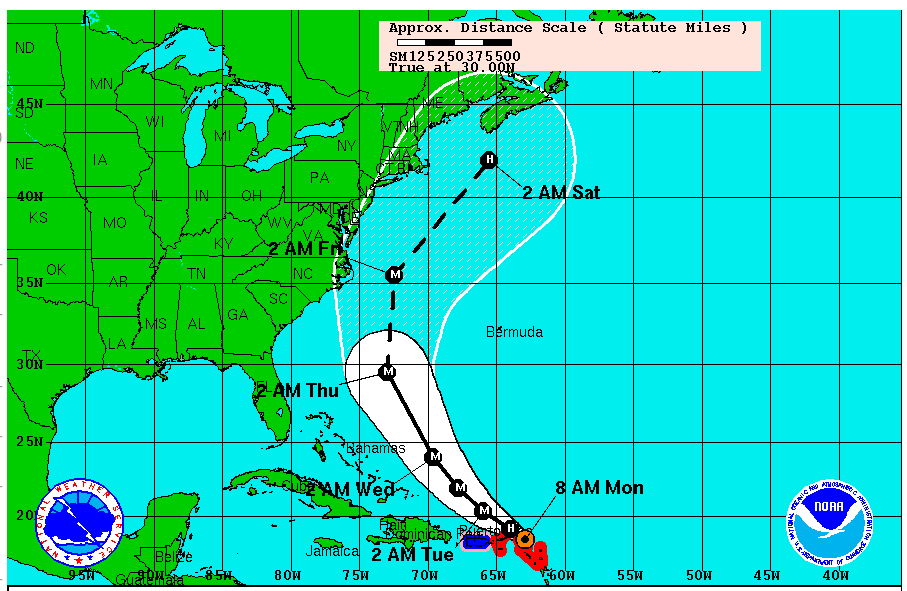Well, maybe it’s not so elusive after all.
All estimates have the projected path of Hurricane Irene heading straight for the most populated city in the nation. Just this morning, AccuWeather.com‘s Senior Meteorologist Kristina Pydynowski, predicted that the storm “is now on a path that could take it dangerously close to, if not over, the mid-Atlantic coastline and New York City on Sunday, posing a serious danger to millions of people.”
Following the almost-imminent brush with the Outer Banks of North Carolina, the storm will come extremely close to or directly over New York City. In preparation, the city’s Department of Environmental Protection is lowering the water level in some of its upstate reservoirs to make room for storm runoff while Mayor Bloomberg is urging residents to prepare for the worst. (Good risk management, Mike B!).
As The Wall Street Journal reports:
The latest European Centre for Medium-Range Weather Forecasts model shows a direct landfall on New York City of a Category 2 Irene, an outcome that would be likely to push a significant storm surge up the Hudson River and raise the level of New York Harbor by 10 to 15 feet. This would truly be a historic blow to the city should it come to pass.
Though it is necessary to prepare for the worst when it comes to any natural disaster, we must keep in mind that forecast error for hurricane projections this far in advance averages about 150 to 200 miles.
The NYC Office of Emergency Management lists 1999’s Tropical Storm Floyd as the last storm affect the area. It brought flash flooding that caused NYC schools to close for the first time since 1996 and led the city to open emergency storm shelters. But the deadliest and most destructive hurricane to hit NYC was the “Long Island Express” in 1938. The category 3 hurricane crossed over Long Island and into New England, killing nearly 200 people — 10 of those in NYC. The storm knocked out power in all areas above 59th street and in all areas of the Bronx.
Here’s is an amazing (and somewhat horrifying if you live in NYC as most of our staff does) video by the History Channel of what could happen if the 1938 hurricane made landfall here today.



